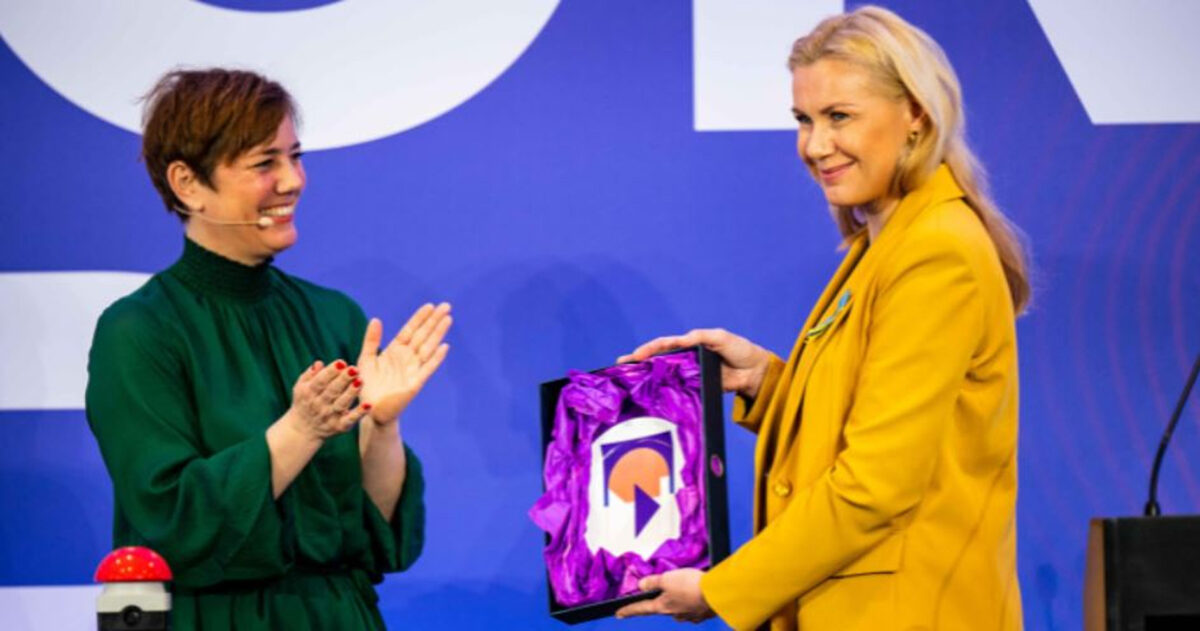Around 400 participants were at the recent SolarPower Europe Summit 2024 event when SolarPower Europe President Aristotelis Chantavas and the vice president of the EU Commission, Maros Sevcofic, officially launched the Mission Solar initiative in Brussels.
Walburga Hemetsberger, the CEO of SolarPower Europe, answered questions from politicians for around two hours. In recent years, the solar industry has achieved a certain level of importance in Brussels, as it represents the fastest-growing source of electricity generation in Europe.
New PV installations in the European Union hit 56 GW in 2023, as EU Energy Commissioner Kadri Simson explained on the second day of the event, which she attended for the third time this year – perhaps because new elections in the EU will be held in the fall. Simson said the solar industry has a “good story to tell,” with the growth of PV in the European Union doubling within two years. Due to expansion, 15 million cubic meters of gas imports from Russia could be saved. In addition, around 650,000 people are now employed in the solar industry in Europe.
“I'm amazed at how much has changed,” Simson said, looking back on her first appearance three years ago. The rapid growth is partly due to EU measures such as the solar energy strategy and the REPower plan, which adjusted the framework conditions and, above all, accelerated approvals for new projects, said Simson.
However, PV manufacturers are being left out in the cold, as they are exposed to “unfair competition” from Chinese competitors. Quick help from Brussels is still not in sight, but Simson said that the European Union has done its homework. Among other things, she alluded to an agreement of EU entities on the Net-Zero Industry Act (NZIA). Now it is up to the member states to implement the regulations. The NZIA provides for a quota of 40% for domestic energy transition technologies to meet demand, including PV, said Simson.
However, it is also about finding a balance. Europe must maintain the pace of growth while also supporting manufacturers. There is still capacity to produce modules in Europe, but it remains to be seen how long existing manufacturers will stay active in the market under the current situation.
Armin Froitzheim, the CTO of Solarwatt, said that the company laid off 84 employees in February.
“And we will have to lay off more people if measures are not taken quickly,” Froitzheim added. “We are waiting for the resilience bonus for roof systems in Germany. But it keeps getting postponed.”
The European Commission also recognizes the need to create a certain level of resilience along the PV value chain. But the European Union's measures against the Chinese industry appear to be too weak, especially with the US Inflation Reduction Act (IRA). There are many adjustments that need to be made in order to create a level playing field for European manufacturers.
Simson also discussed data, cybersecurity, and the Ecodesign Directive. But what PV manufacturers really need in order to survive and massively expand capacity are opex and capex subsidies, as the United States is currently demonstrating, as these incentives are attracting European manufacturers to the US market.
Sevcofic also promoted the introduction of resilience auctions in the member states at Solarpower Europe Summit 2024. The criteria will have to be “rebalanced,” he said. Criteria such as CO2 footprints, human rights, and sustainability should count more than just the price, he said.
Simson noted that she sent letters to all responsible officials ahead of the meeting of EU energy ministers. She said it outlined potential measures to improve the framework conditions for PV manufacturers without restricting growth.
“We agree that we need a targeted response that helps EU manufacturers without affecting the rest of the market. With this in mind, we want to promote high-quality products that meet high environmental and labor standards,” said Simson. “We want to concentrate on innovative technologies such as building-integrated photovoltaics or agri-PV.”
There is an agreement that there will be no import duties.
This content is protected by copyright and may not be reused. If you want to cooperate with us and would like to reuse some of our content, please contact: editors@pv-magazine.com.




1 comment
By submitting this form you agree to pv magazine using your data for the purposes of publishing your comment.
Your personal data will only be disclosed or otherwise transmitted to third parties for the purposes of spam filtering or if this is necessary for technical maintenance of the website. Any other transfer to third parties will not take place unless this is justified on the basis of applicable data protection regulations or if pv magazine is legally obliged to do so.
You may revoke this consent at any time with effect for the future, in which case your personal data will be deleted immediately. Otherwise, your data will be deleted if pv magazine has processed your request or the purpose of data storage is fulfilled.
Further information on data privacy can be found in our Data Protection Policy.